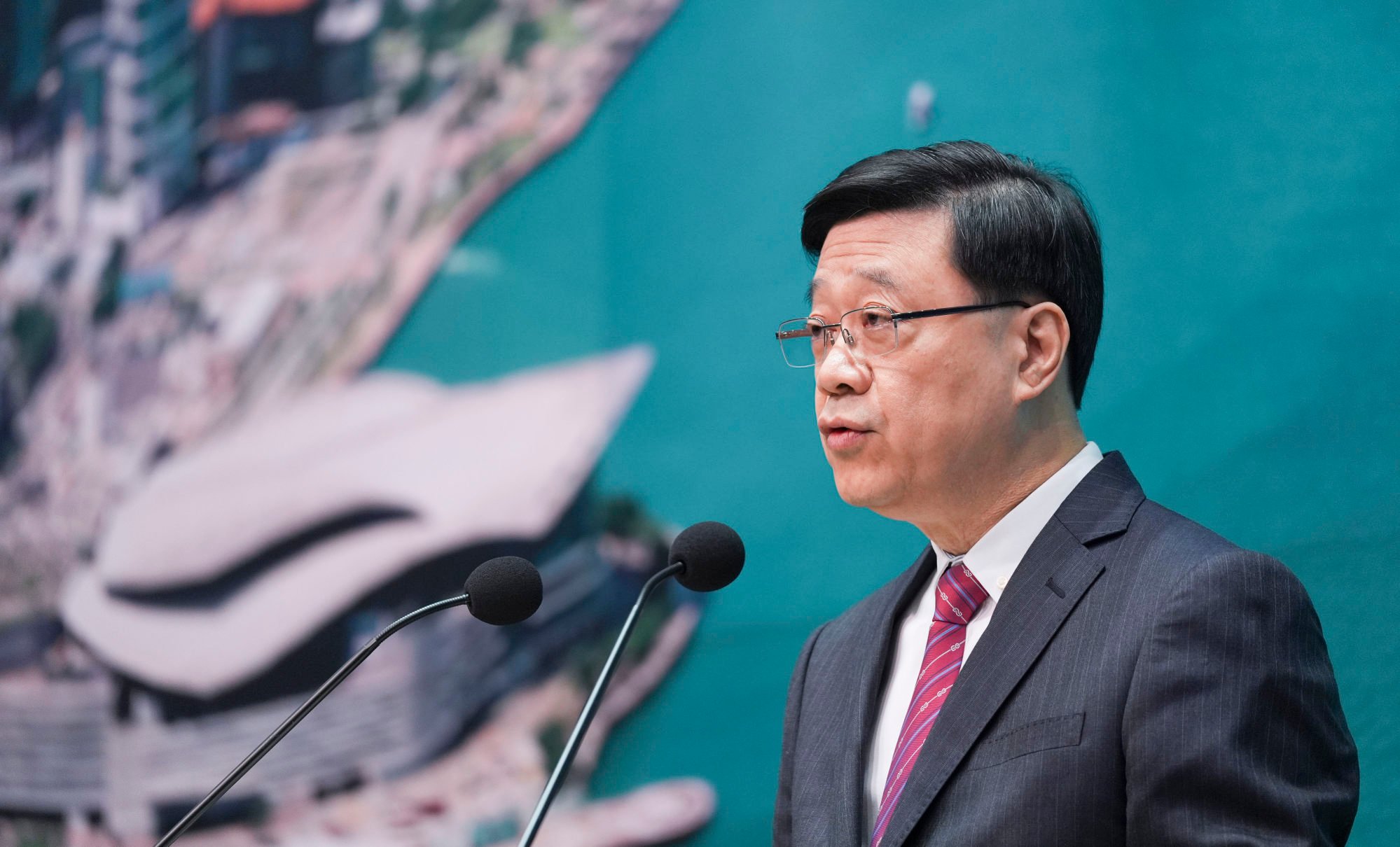Hong Kong’s John Lee urges society to study paper issued after Beijing’s third plenum
The source also noted that Zheng Yanxiong, director of Beijing’s liaison office in Hong Kong, who has yet to be made a Central Committee member, had attended plenum discussions chaired by executive vice-premier Ding Xuexiang, who leads the Central Leading Group of Hong Kong and Macau Works, the party’s key unit on Hong Kong affairs.
Zheng was also seen presenting in front of Ding in footage aired on China Central Television prime time news on Thursday evening.
Over in Hong Kong, Lee issued a statement describing the four-day session in Beijing as an important meeting held at a critical period as the country worked to build a strong nation.
“History has proved that Hong Kong has always played an active role in the country’s reform and opening up,” he said.
“As a superconnector and a super value-adder connecting the mainland to the world, Hong Kong has also played an important role in [helping mainland enterprises] ‘go out’ and ‘bringing in’ [international businesses and investors].”

He said the country’s development had entered a critical period and Hong Kong should grasp opportunities that continued to give full play to the city’s unique advantages.
“All sectors of Hong Kong society must conscientiously study and put into practice the spirit of the third plenary session … give full play to the power and value of ‘patriots governing Hong Kong’, fulfil Hong Kong’s responsibilities, seize the opportunities offered to make contributions as the country further deepens reforms and promote a Chinese path to modernisation,” Lee said.
Chief Secretary Eric Chan Kwok-ki, the city’s No 2 official, also said the communique showed the country’s “incomparable determination” to continue to reform and open up.
Justice minister Paul Lam Ting-kwok said he was impressed by the importance of the country attached to the principle of governing the nation in accordance with law.
“Hong Kong should make good use of the common law system under one country, two systems and be more proactive in thinking about and implementing how to help the country complete the task of reform,” he said.
“This will also be one of the most important work directions for the Department of Justice in the future.”
Professor Lau Siu-kai, a consultant with the Chinese Association of Hong Kong and Macau Studies, Beijing’s semi-official think tank, said the plenum communique was an important document.
“We only have an outline of the reforms that will be undertaken in the days ahead,” he said.
“I am sure that the concrete reforms will be significant, bold and innovative, particularly in the realms of promoting private and foreign investment, building a big national market, the reform of state enterprises and the reform of the tax system.”